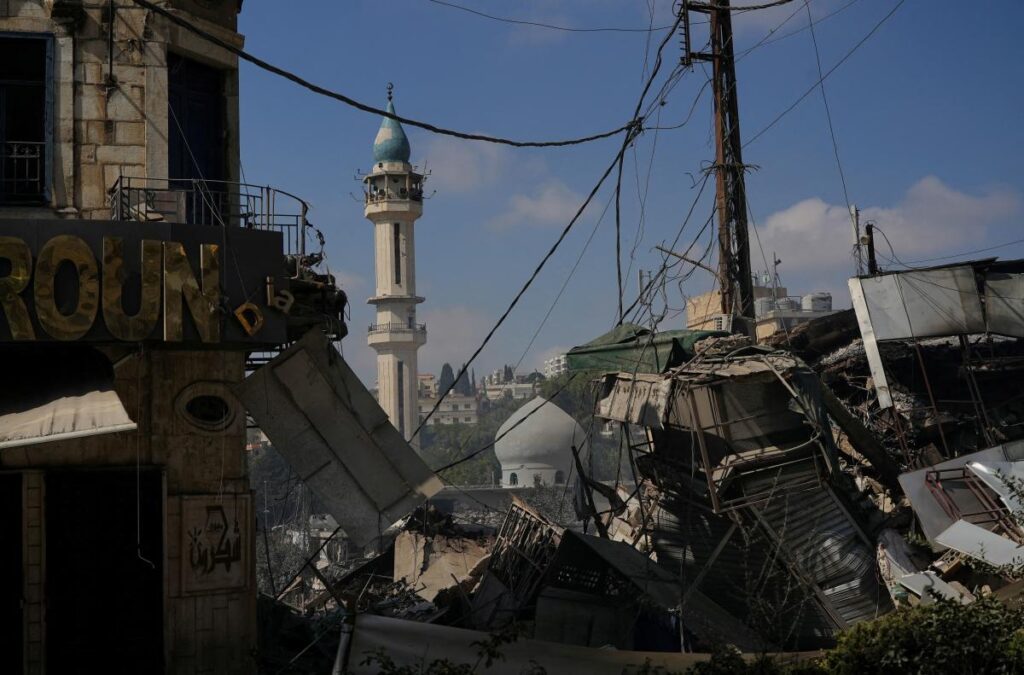On Sunday, a significant escalation in hostilities was marked by a Hezbollah drone strike in central Israel that resulted in injuries to 40 individuals, reported by rescue service officials. This incident is one of the most serious attacks on Israel in the past year, occurring amidst Israel’s intensifying military operations in southern Lebanon. Following the drone strike, Israel formally called for the evacuation of United Nations peacekeeping units from the region, alleging aggressive actions where Israeli tanks forcibly entered a peacekeeper base. This sequence of events highlights the deteriorating security environment along the Israel-Lebanon border and the increasing risks faced by UN personnel, leading to international concern regarding the safety of peacekeepers engaged in stabilizing efforts in the area.
The recent flare-up is part of a broader Israeli campaign against Hezbollah, a powerful Iran-backed militant group deeply entrenched in Lebanon’s political landscape. Despite incurring losses in recent conflicts, Hezbollah has attempted to shape the narrative around Israeli military operations, portraying them as failures in a bid to undermine Israeli morale and assert its own resilience amid ongoing hostilities. An analysis from the Institute of War emphasized this tactic, revealing how Hezbollah is leveraging its military engagements to bolster its domestic and regional standing, thereby complicating the dynamics of the conflict between Israel and its adversaries.
In parallel to the military developments, Iranian officials have made strong statements regarding their support for Hezbollah and their own stance against Israel. Iran’s Foreign Minister warned of their readiness to respond decisively to any Israeli aggression, dismissing any notions of “red lines” in their defense strategy. This rhetoric signals Tehran’s commitment to supporting its allies in the region and suggests that any further escalation could lead to broader confrontations involving multiple regional players.
In response to the heightened tensions and security threats resulting from these developments, the United States has taken action to reinforce its commitment to Israel’s defense. The Department of Defense authorized the deployment of a new weapons system aimed at enhancing Israel’s air defenses, particularly in light of potential Iranian ballistic missile threats. This decision underscores the U.S. commitment to protect both Israel and American personnel in the region, aimed at deterring any further hostilities from Iran.
The growing confrontation between Israel and Hezbollah, along with the involvement of Iran, has drawn international attention and criticism. Notably, Italian Prime Minister Giorgia Meloni, who has historically shown support for Israel, condemned the violence in her communication with Israeli Prime Minister Benjamin Netanyahu. Such diplomatic initiatives reflect concerns among Western allies about the increasing instability in the region and the potential for broader conflict that could ensnare multiple nations.
As the situation continues to evolve, the implications of the ongoing violence could have significant ramifications not only for Israel and Lebanon but also for regional and international relations. The dynamics at play, from military engagements to diplomatic responses, illustrate a complex landscape where actions by one actor could provoke reactions from others, leading to a cycle of violence that might prove difficult to contain. Heightened vigilance and proactive engagement from the international community may be necessary to mitigate the risks of escalation and to facilitate a pathway toward de-escalation and potential resolutions to the entrenched conflict in the region.

